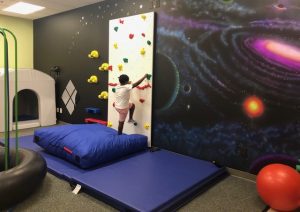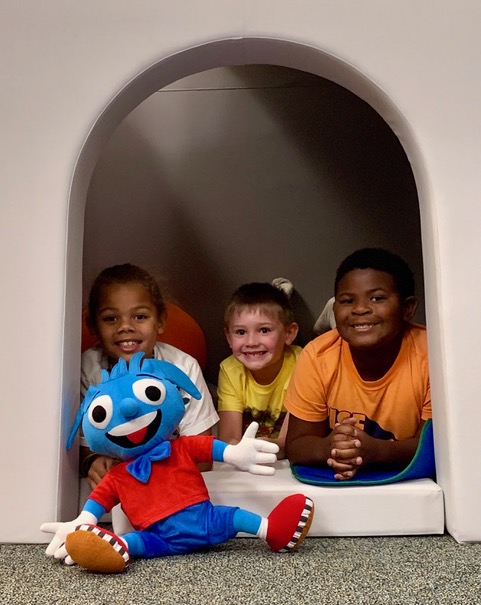By Hallie Rojeski, John Crosland School, Head of School; Nicole Cyphert, OT/Director of Integration Station Pediatric Therapy Services
How do children do it? They are asked to develop a strong sense of self, increase their academic knowledge, master the latest advances in technology, and develop strong relationships with peers all while processing various environmental demands that may be uncomfortable or challenging to their sensory systems.
Although Sensory Processing Disorder (SPD) has not been formally added to the DSM-5, many parents are taking note of their child’s sensory needs and the impact on participation in the school environment. According to the American Occupational Therapy Association, it is estimated that 5% or 1 in 20 children in the US are impacted by SPD. SPD can occur in isolation; however, it can also be accompanied by ADHD or Autism Spectrum Disorder. Thankfully, families in the Charlotte area have access to many resources that provide support and promote successful childhood experiences. 
Through expanded public awareness of SPD, Sensory Spaces can now be found at airports, stadiums, and in many public locations to offer support and inclusion. Our children also need opportunities to meet their sensory needs while at school. Through the collaboration of parents, teachers and occupational therapists, The John Crosland School identified the need to increase sensory supports within the academic setting and set out with a mission to do just that!
The John Crosland School wrote and was awarded a grant through the Long Leaf Fund last spring with a goal to build a Sensory Space Lab for students. The Sensory Space Lab is located on the Lower School hallway where students access it proactively throughout the day during their “brain breaks” and other times as needed.
Crosland is unique as we create educational programming in an environment that supports the whole child. We customize the curriculum to meet the students where they are, but until their sensory needs are met, barriers to maximize learning may exist. Once a child is balanced, confident and has his/her sensory needs met, he/she will be ready to learn and improve their Executive Functioning abilities.
The Sensory Space Lab supports 5 developmental processes needed for learning:
1. Sensory Regulation (emotional & activity regulation)
2. Social/Emotional
3. Communication
4. Executive Functioning/Cognition
5. Physical Abilities
The developmental processes enhanced in the Sensory Space Lab lead to the expansion of Executive Functioning (EF) skills. Through our systematic approach to EF development and on-going sensory supports, our students are developing a strong sense of self, mastering technology for the future, building strong relationships, and succeeding in the learning environment.
In addition to the new Sensory Space Lab, The John Crosland School also integrates the following opportunities to help each child succeed in the learning environment:
– Movement of the entire body and cross-lateral connections
– Time outside in nature
– Therapy dogs
– Mindfulness and social thinking
– Sensory brain breaks
The John Crosland School
5146 Parkway Plaza Blvd.
Charlottte, NC 28217
704-365-5490 ext 709
Website
Blog
Facebook
Instagram: @johncroslandschool and @dogsofcrosland
Twitter: @croslandschool



